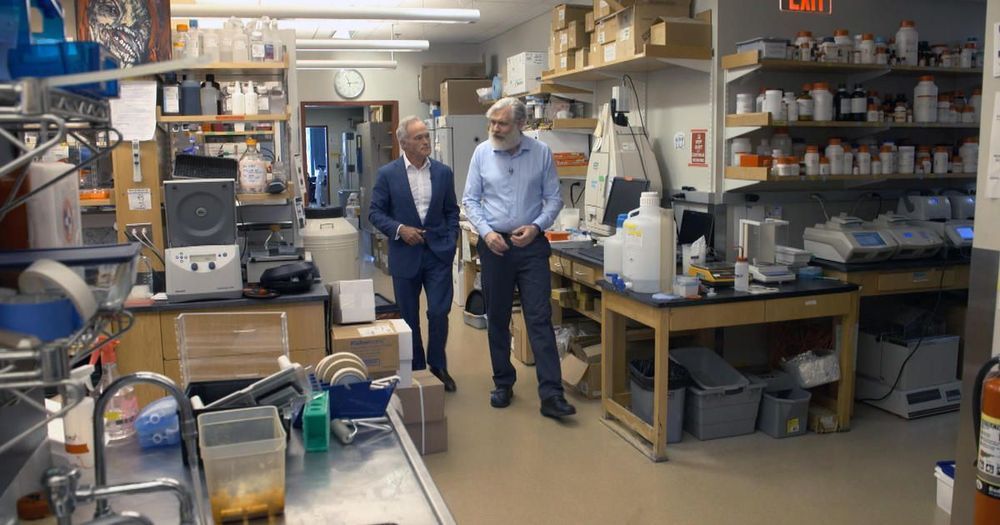O.,o.
Acknowledges the fact that the Greys are cross-breeding with human beings in an attempt to re-vitalize the genetic structure of their species.

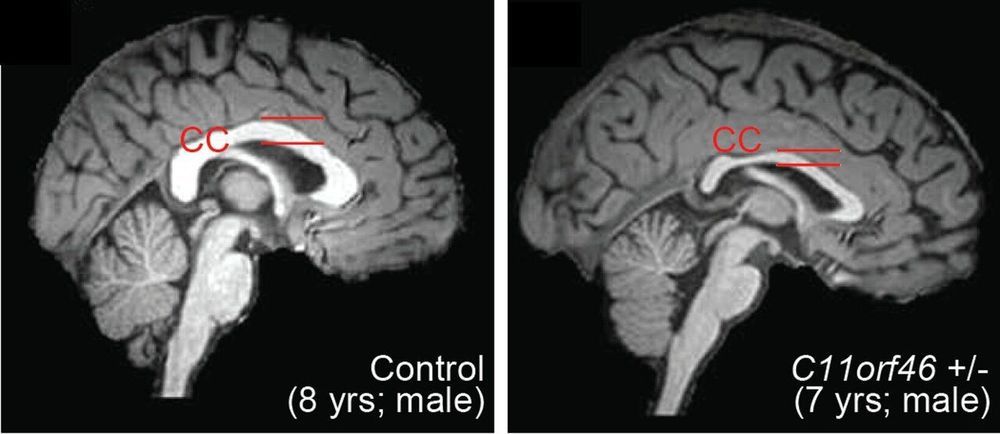
Using a targeted gene epigenome editing approach in the developing mouse brain, Johns Hopkins Medicine researchers reversed one gene mutation that leads to the genetic disorder WAGR syndrome, which causes intellectual disability and obesity in people. This specific editing was unique in that it changed the epigenome—how the genes are regulated—without changing the actual genetic code of the gene being regulated.
The researchers found that this gene, C11orf46, is an important regulator during brain development. Specifically, it turns on and off the direction-sensing proteins that help guide the long fibers growing out of newly formed neurons responsible for sending electrical messages, helping them form into a bundle, which connects the two hemispheres of the brain. Failure to properly form this bundled structure, known as the corpus callosum, can lead to conditions such as intellectual disability, autism or other brain developmental disorders.
“Although this work is early, these findings suggest that we may be able to develop future epigenome editing therapies that could help reshape the neural connections in the brain, and perhaps prevent developmental disorders of the brain from occurring,” says Atsushi Kamiya, M.D., Ph.D., associate professor of psychiatry and behavioral sciences at the Johns Hopkins University School of Medicine.
A ketone-supplemented diet may protect neurons from death during the progression of Alzheimer’s disease, according to research in mice recently published in JNeurosci.
Early in the development of Alzheimer’s disease, the brain becomes over excited, potentially through the loss of inhibitory, or GABAergic, interneurons that keep other neurons from signaling too much. Because interneurons require more energy compared to other neurons, they may be more susceptible to dying when they encounter the Alzheimer’s disease protein amyloid beta. Amyloid beta has been shown to damage mitochondria — the metabolic engine for cells — by interfering with SIRT3, a protein that preserves mitochondrial functions and protects neurons.
Cheng et al. genetically reduced levels of SIRT3 in mouse models of Alzheimer’s disease. Mice with low levels of SIRT3 experienced a much higher mortality rate, more violent seizures, and increased interneuron death compared to the mice from the standard Alzheimer’s disease model and control mice. However, the mice with reduced levels of SIRT3 experienced fewer seizures and were less likely to die when they ate a diet rich in ketones, a specific type of fatty acid. The diet also increased levels of SIRT3 in the mice.
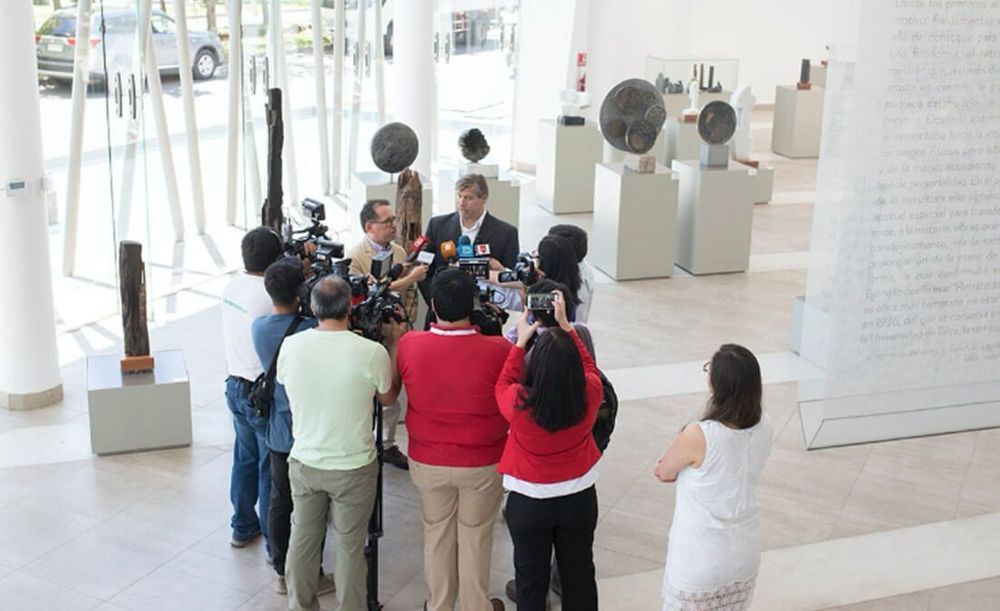
Last week, the transhumanist activist Zoltan Istvan announced his candidacy for President of the United States in next year’s elections. The writer, humanitarian and outspoken advocate of radical science is no stranger to the issues surrounding Longevity, and has spoken widely on subjects including AI, genetic editing, technology policy, and futurism.
In 2016, Istvan ran as an independent presidential candidate and travelled across the United States, spreading his message from a coffin-shaped bus, known as the “Immortality Bus.” This time he’s on the ballot, running against Donald Trump as a candidate for the Republican party in next year’s primaries. Things are a bit more serious this time.
Among his key policies, Istvan includes transhumanism, universal basic income and the need to beat China in the global innovation race – an issue we addressed in our Jamie Metzl interview. We spoke to him to find out more about his views on the Longevity sector.
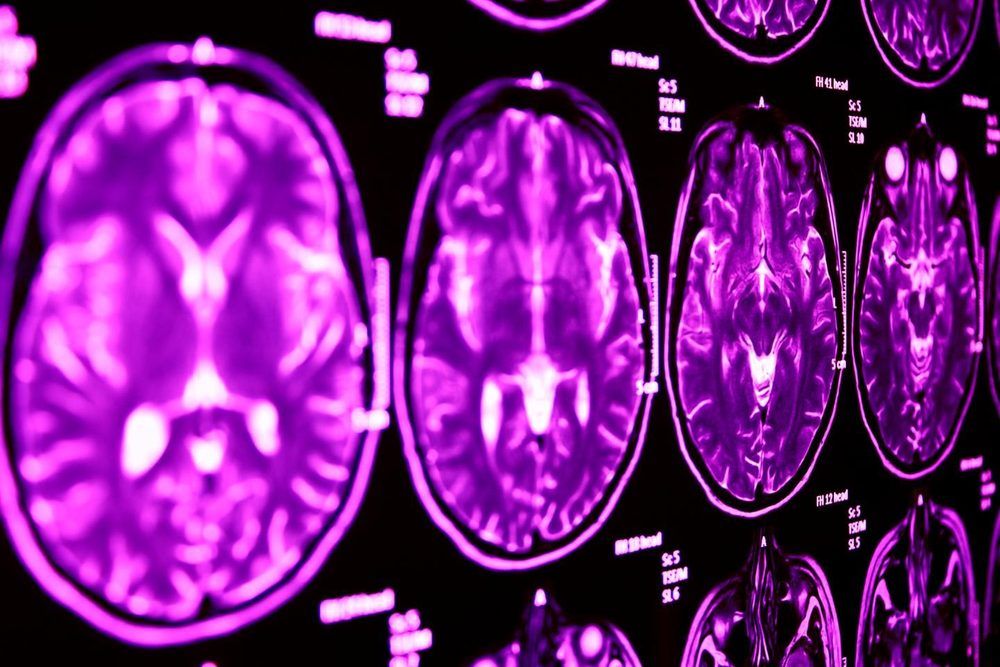
Lancaster University researchers have discovered, for the first time, how a genetic alteration that increases the risk of developing Autism and Tourette’s impacts on the brain.
Their research also suggests that ketamine, or related drugs, may be a useful treatment for both of these disorders.
Autism affects an estimated 2.8 million people in the UK while Tourette’s Syndrome — a condition that causes a person to make involuntary sounds and movements called tics –affects an estimated 300,000 people in the UK. The treatments available for both disorders are limited and new treatments are urgently required. Recent research has also shown that these disorders are genetically linked.
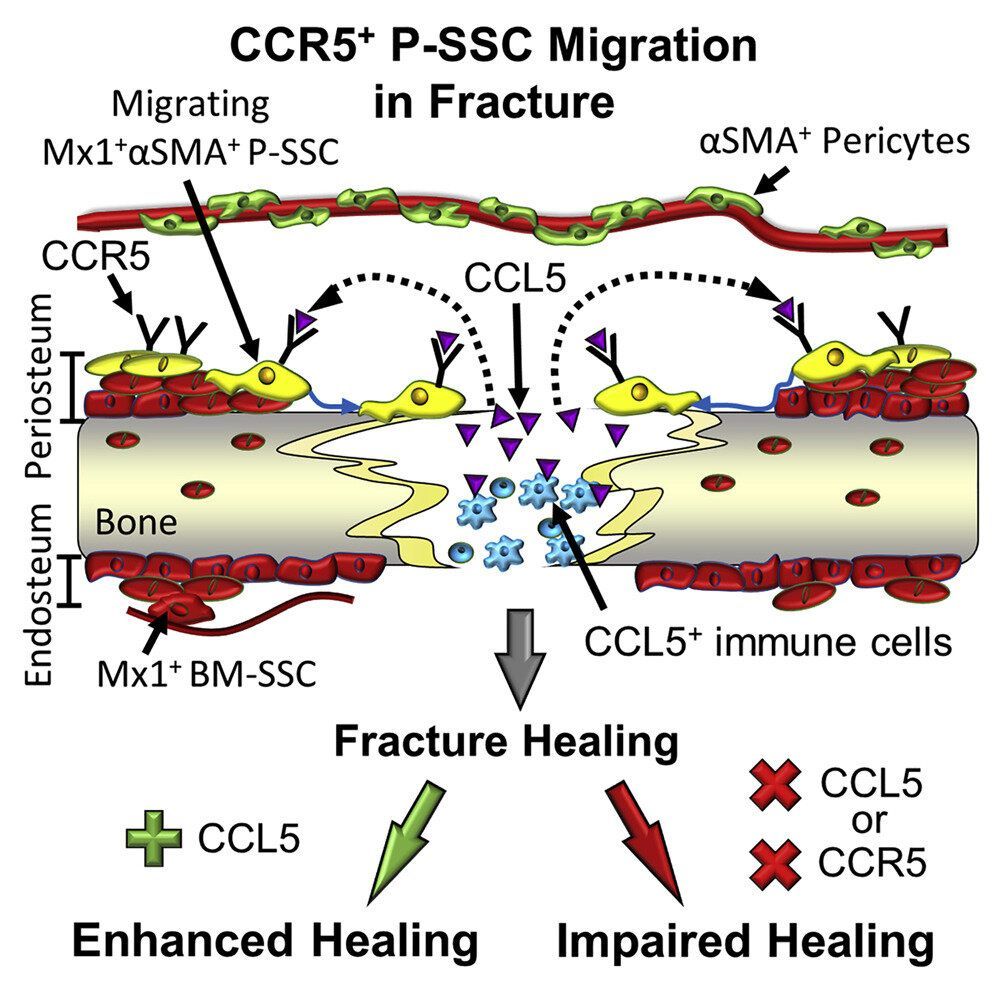
Led by researchers at Baylor College of Medicine, a study published in the journal Cell Stem Cell reveals a new mechanism that contributes to adult bone maintenance and repair and opens the possibility of developing therapeutic strategies for improving bone healing.
“Adult bone repair relies on the activation of bone stem cells, which still remain poorly characterized,” said corresponding author Dr. Dongsu Park, assistant professor of molecular and human genetics and of pathology and immunology at Baylor. “Bone stem cells have been found both in the bone marrow inside the bone and also in the periosteum—the outer layer of tissue—that envelopes the bone. Previous studies have shown that these two populations of stem cells, although they share many characteristics, also have unique functions and specific regulatory mechanisms.”
Of the two, periosteal stem cells are the least understood. It is known that they comprise a heterogeneous population of cells that can contribute to bone thickness, shaping and fracture repair, but scientists had not been able to distinguish between different subtypes of bone stem cells to study how their different functions are regulated.
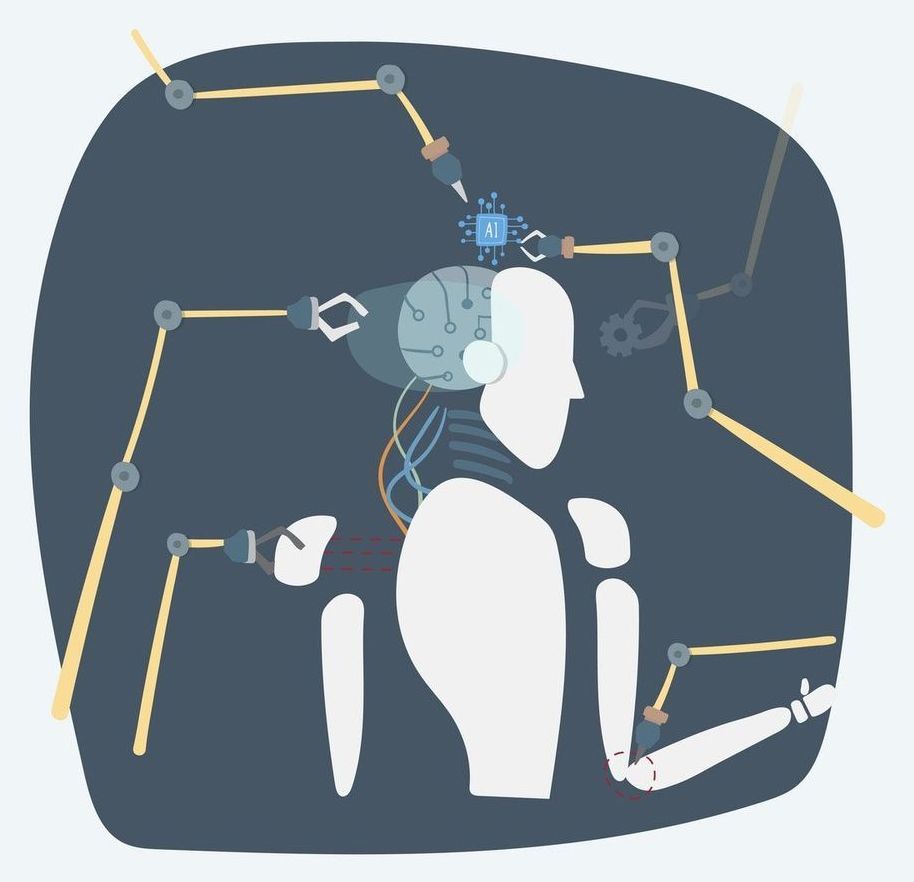
I am in shock… Google suddenly as yahoo are allowing conjecture and mendacity be seen as public or scientific opinion. Here is another confused mind who towards the end of her rant quotes Christian scripture as basis to stop Life extension-Transhumanism???
When I say to these minds Behold the leader of Christianity stood for Life abundant-Super Longevity and I can prove such. No matter what lost evangelist or preacher tells you Jesus was a medical researcher of extraordinary magnitude…
NOW BEHOLD THE LOST in this article… https://www.rodofironministries.com/…/transhumanism-and-imm… Respect r.p.berry & AEWR wherein aging now ends we have found the many causes of aging and we have located an expensive cure. We search for partners-investors to now join us in agings end… gerevivify.blogspot.com/
Whether we like it or not, the hybrid age is already here. From genetic manipulation, to AI technology, to nano-technology, robotics, 3D printing, brain mapping, super computing, the list is literally endless. Futurists and Transhumanist philosophers believe that science and technology are limitless, and that humanity’s current cultural traditions and mindset are the mechanisms in place that prohibit human development.
Mankind has experienced formidable technological growth in the past from the early ancestors to the Agrarian Age, the Industrial Age in the 18th century, and the Information Age in the 1970s, from their point of view, we are simply going through another revolutionary leap into what they call, the Hybrid Age.
The Transhumanist Movement, also known as H+ is an intellectual, cultural and political movement that supports technological enhancements in the human body through the use of genetics, robotics, synthetic biology, AI technology among others to modify the physiology, psyche, memory and progeny of a human being and ultimately achieve immortality on earth, (a procedure they believe can be reached within the next decade) whereby human consciousness can be uploaded into a robot, cyborg or possibly, a human clone. The sci-fi novel “Altered Carbon” by Richard K. Morgan captures a cornucopia of technological concepts that are, believe it or not, in experimental stages across the globe, methods such as: human hybridization, CRISPR-technology—Chinese scientists have used CRISPR for gene-editing on 86 human patients; limb regeneration, bionic augmentation, the making of super-soldiers, cloning, Cryonics and the growing interest in information-theoretic death, neuropreservation, suspended animation, molecular nano-technology and so on. Sounds far-fetched right?
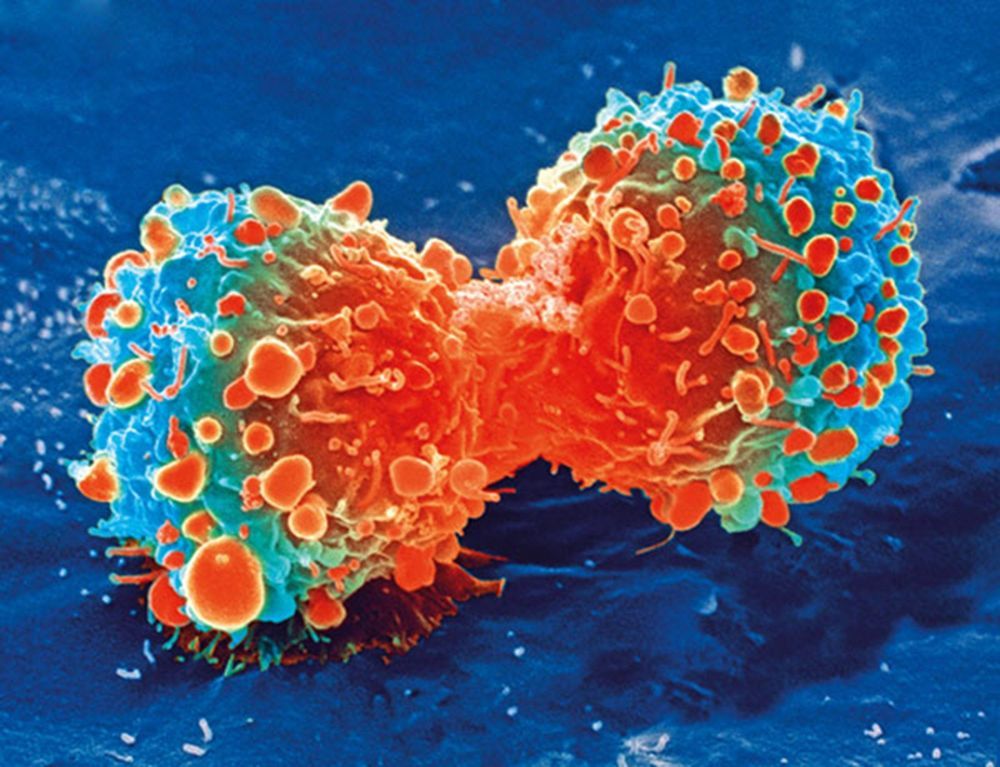
Cancer immunology drugs, which harness the body’s immune system to better attack cancer cells, have significantly changed the face of cancer treatment. People with aggressive cancers are now living longer, healthier lives. Unfortunately, cancer immunology therapy only works in a subset of patients.
Now, a new study from scientists at the UCLA Jonsson Comprehensive Cancer Center helps explain why some people with advanced cancer may not respond to one of the leading immunotherapies, PD-1 blockade, and how a new combination approach may help overcome resistance to the immunotherapy drug.
The UCLA study, published today in the inaugural issue of the new scientific journal Nature Cancer, showed that genetic and pharmacological inhibition of the oncogene PAK4 overcomes resistance to anti-PD-1 therapy in preclinical models.
